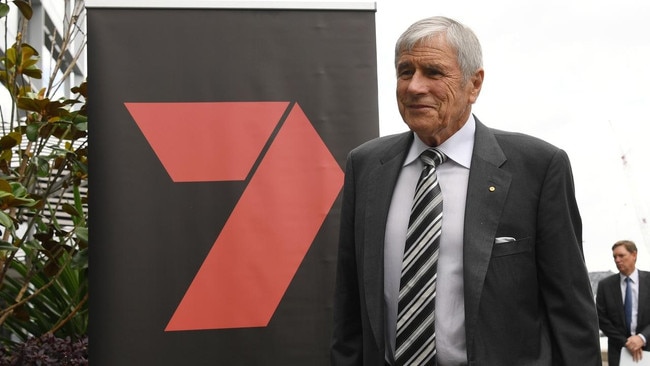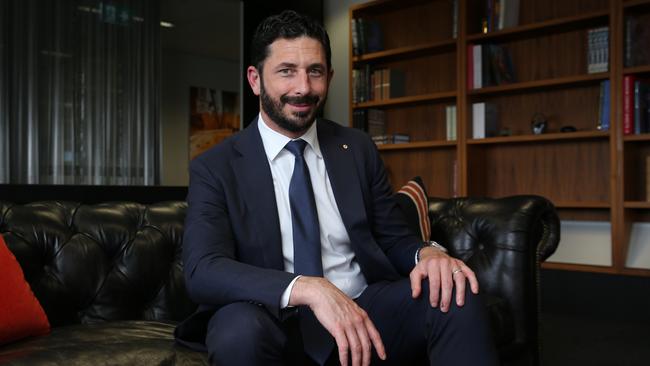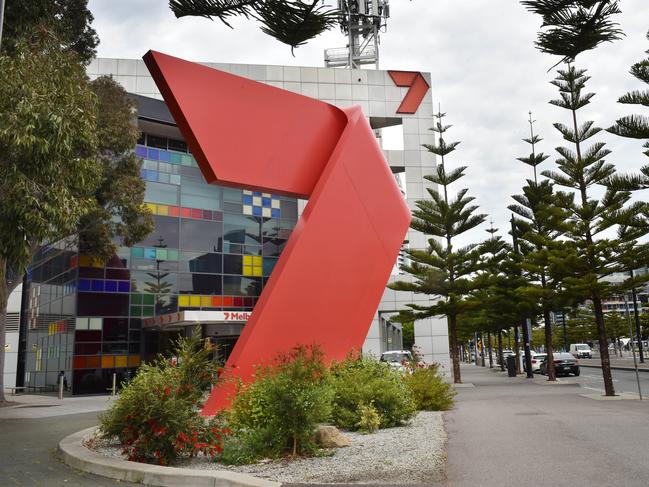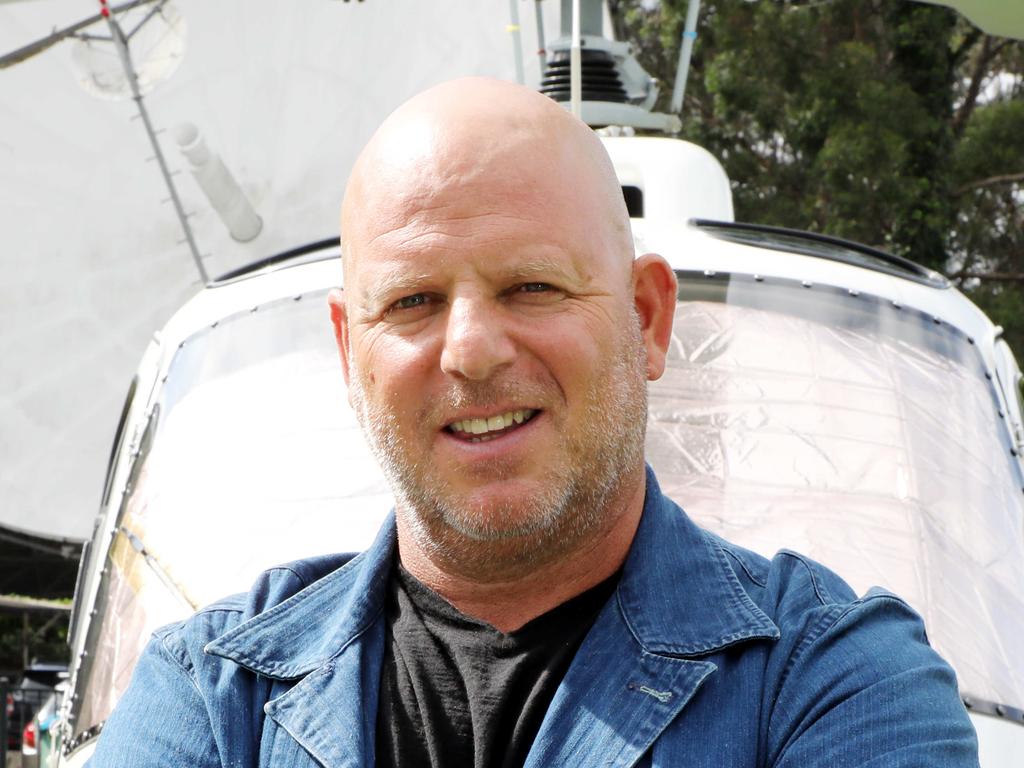
For the past five weeks, the Seven Group has been putting maximum effort into the thing that is increasingly of least importance to it – the Seven Television network.
The reputational damage to Seven from the allegations by Taylor Auerbach about how the interview with Bruce Lehrmann was acquired, will be untold for years. But those allegations, about cocaine and $10,000 worth of massages, bodes poorly for any organisation’s reputation, let alone one so constantly in the public’s gaze.
The truth is that the Seven Network is diminishing by the day – not just from an overall ratings perspective (that’s common across all free-to-air networks), but also in its importance to the broader Stokes family business.

The Seven Group today is worth $14.7bn. It owns the Westrac, the Caterpillar truck franchise in Australia. It also owns Coates Hire, one of the most lucrative services companies in the country. It has 29 per cent of oil and gas company Beach Energy and almost 80 per cent of Boral, the largest construction materials company in Australia.
And it owns 40 per cent of Seven West Media – owner of the Seven Network, and the West Australian. Seven West is listed on the ASX, valued at $300m.
Now do the maths. The Seven Group’s 40 per cent of Seven West is worth $120m. As a percentage of the total value of Seven Group … it’s about 0.81 per cent of the business. In other words, all the grief from the Ben Roberts-Smith case; and from blowback from the Bruce Lehrmann interview, was from a business that represents less than 1 per cent of its assets.
To get a sense of proportion, on Friday the independent directors of Boral agreed to a renewed offer from Seven Group to take over the remaining 20 per cent it does not own. That extra 20 per cent in Boral is worth around $1.36bn … 10 times more than Seven Group’s interest in the Seven TV Network. Yet that deal will receive less scant coverage – compared with the salacious and damaging accusations by Auerbach.
So, you might ask, why bother with something so small … yet which causes such reputational risk?
The answer, of course, lies in the history of Seven and Kerry Stokes. In 1979 he bought Channel 7 in Canberra, then in Adelaide, and eventually he gained a third licence in Perth. Alongside these media assets, he gained the Caterpillar franchise in the late 1980s.
Stokes’ breakthrough came in 1996 when he bought 19 per cent stake of the broader Seven Network. He borrowed heavily at the time to keep buying shares and to insert his own people onto the board and management. Some doubted his ability to survive. But Stokes did more than survive … he prospered, and with the financial power came influence.
For 20 years television was a powerful place to be. Its financial influence on the overall business was important. But the deal to buy 71 per cent of Boral in 2021 was clearly inspired and undertaken by the CEO of the Seven Group, Ryan Stokes. Ryan, too, borrowed to make that purchase – $6bn – but within two years the net debt had been reduced to $3.7bn.

Two months ago, I spoke to Ryan Stokes about the change to the company – but especially why it continues to hang onto the media assets, so minute in the overall scheme of things.
As a conglomerate that is paranoid about the return on capital invested – which it gets from Westrac, Coates Hite and Boral – where is the discipline when it comes to Seven West Media? He says there is discipline, because the capital Seven West uses hasn’t changed since the overall group was created in 2010.
I asked whether Seven West is still there because they like it as an asset – whether Kerry likes it. Ryan understandably hates that question. But he answered: “We believe in the power of the media and the opportunity within it and what it can do from the context of a cash generation.”
I then asked if he has buyers lining up to buy the Seven Network. “Ahh, at this point it’s not for sale,” he said, then added: “I think the sector is going through periods of consolidation and I think given the current cyclical pressure that are impacting the ad market, it’s likely – I think – that we will see additional consolidation within media.”

And that, remember, was before the Bruce Lehrmann revelations. For any board, that fuss for such little reward, is not worth it.
After all that, you can almost bet the Seven television network is right now for sale. Its all just a matter of price.
But wait, there’s more. You can most likely throw in Ten in the mix as well after, this week, its owner Paramount Global said it will reduce its board from 11 to seven as it considers a merger with Skydance Media, led by David Ellison – the son of Oracle founder Larry Ellison.
Ross Greenwood is Business Editor at Sky News Australia.








In life, it’s generally best to put most effort into the things that are most important to you. Conversely, it is best to commit less to the things that matter the least.